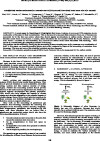Suchergebnisse
Architectural Concept for Musicians
Starting from the special needs of a specific user group, an Architectural Concept for Musicians will be proposed and realized, with Housing as principal functional usage.
IEA IETS Annex 18: Digitalization, artificial intelligence and related technologies for energy efficiency and reduction of GHG emissions in industry (Working period 2020 - 2023)
The work in Task 18 enables the exchange of experience and knowledge between industry and research institutions from different countries. Through this cooperation best practices are identified and disseminated to promote the implementation of energy-efficient technologies in industry. In the medium and long-term, this contributes to reduce energy consumption and greenhouse gas emissions of industry.
CEM12 and Gender Equality/Youth Participation: Empowering Women as Key Drivers for the Transition towards Low Carbon Economies
4. June 2021, 13:00 - 14:15
The event will showcase the CEM’s focus on gender equality and foster intergenerational dialogue/ exchange on the matter.
NEB Salon – Potentials for French-Austrian cooperation in the New European Bauhaus
21. Mai 2025, 13:00 - 15:00 Uhr
Online
The info webinar presented the 2025 NEB topics in Horizon Europe. The event identified common fields of expertise and fostered French-Austrian collaboration in the upcoming calls.
ERA-NET Bioenergy Thematic Online Seminar "Highlighting innovative bioenergy research"
18. January 2022, 9:00 - 13:00 Uhr
Online
The ERA-NET Bioenergy Thematic online Seminar will provide an exciting update on newest research results looking at biological or thermal conversion pathways for bioenergy production.
Clean Energy Ministerial Pre-event "Women in Energy: Harnessing All Talent"
17. September 2020, 2:00 - 3:30 p.m. CET
Online
Do you support the participation of women in the energy sector? Do you want to help accelerate efforts to make the energy sector more inclusive and diverse? Participate in this virtual event via Youtube-Livestream.
Webinar: Biomass Torrefaction
27. October 2016
Webinar, AT
Technolgy Status and Commercialisation, Applications for Torrefied Biomass and its Role in Logistics and Trade
European Geothermal Congress (EGC)
17. - 21. October 2022
Berlin, DE
Organised every 3 years by European Geothermal Energy Council (EGEC), the European association representing the geothermal sector, EGC is the largest geothermal event in Europe. Hosting a combination of events for all the geothermal sector, EGC is a unique opportunity for stakeholders from all parts of the sector, to come together and to learn, finding new ways to progress.
IEA UsersTCP SLA 2.0: Inclusive and Community-Oriented Approaches to a Social License to Automate (Working period 2022-2024)
The energy transition is critical in solving the climate crisis. Automated demand side management has great potential in this process but struggles with social acceptance. In SLA2.0, the role of gender and diversity factors concerning flexibility and engagement was analysed, and the potential contribution of energy communities to a social license for automation was explored. Based on the findings, flexibility profiles and recommendations were developed.
Process Heat Collectors State of the Art within Task 33/IV (Weiss/Rommel 2008)

Approximately 128 GWth, the equivalent of 183 million square meters, of solar thermal collectorswere installed by the year 2006 worldwide (Weiss et al., 2008). Until now, the widespread use of solarthermal applications has focused almost exclusively on swimming pools and residential domestichot water preparation and space heating.
Englisch
IEA-GHG Newsletter #110, 6/2013

Herausgeber: International Energy Agency - Greenhouse Gas R&D Programme
Englisch, 16 Seiten
Wall systems made of renewable resources

Testing and optimising post and beam straw bale constructions Testing the thermal insulation (specific heat conductance) and fire resistance of a construction (combustibility grading period), optimisation of building junction elements, development of a mobile testing lab for efficient and effective quality management
IEA Bioenergy Executive Summary (2009)

This publication is the Excutive Summary of a report jointly prepared for IEA Bioenergy by the Energy Research Centre of the Netherlands (ECN), E4tech, Chalmers University of Technology and the Copernicus Institute of the University of Utrecht.
Englisch
Energy R&D: Public Expenditure in Austria 2010

Membership of the International Energy Agency (IEA) obligates Austria to report on an annual basis all publicly financed energy research and development projects. This survey fulfils not only international requirements but also shows the importance of energy research in Austria and helps to set and test policy goals as well as to recognize respective trends at an early stage.
Englisch
Documentary on 3sat "The future of living"

Production of a 45 minutes film about living in the future.
A perspective on algal biogas

J. D Murphy, B. Drosg, E. Allen, J. Jerney, A. Xia, Ch. Herrmann
Herausgeber: IEA Bioenergie Task 37
Englisch, 38 Seiten
Downloads zur Publikation
Emissions from bioenergy (2010)

Improved accounting options and new policy needs. In Proceedings of the 18th European Biomass Conference and Exhibition, Lyon.
Bird D. N., Cowie A., Frieden D., Gustavsson L., Pena N. Pingoud K., Rüter S., Sathre R., Soimakallio S., Türk A., Woess-Gallasch S., Zanchi G.
Englisch, 5 Seiten
Downloads zur Publikation
Energy R&D - Public Expenditure in Austria 2009

Membership of the International Energy Agency (IEA) obligates Austria to report on an annual basis all publicly financed energy research and development projects. This survey fulfils not only international requirements but also shows the importance of energy research in Austria and helps to set and test policy goals as well as to recognize respective trends at an early stage.
Englisch
